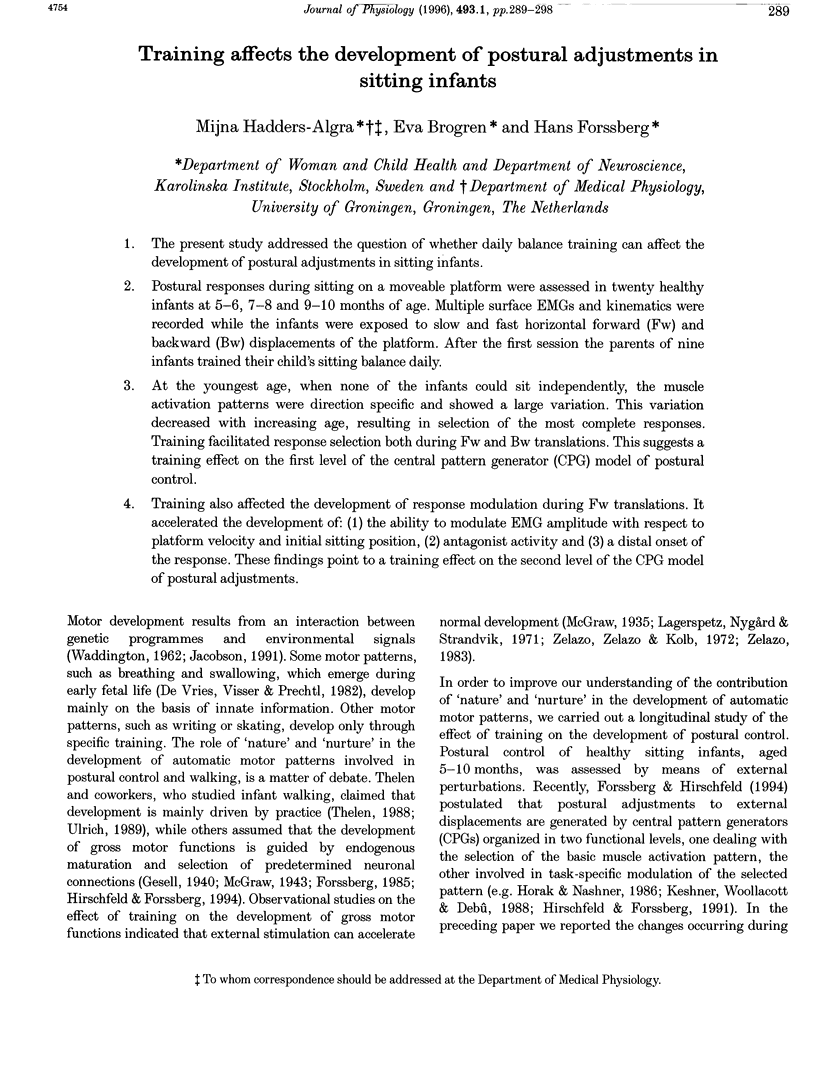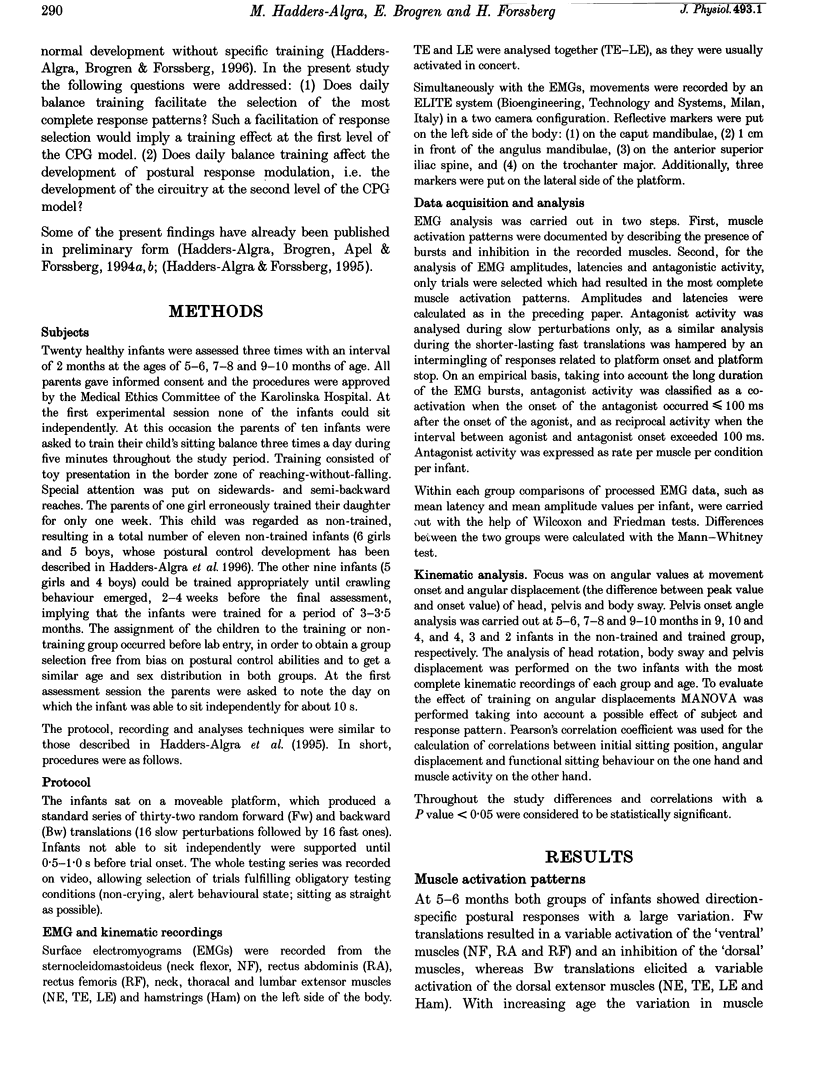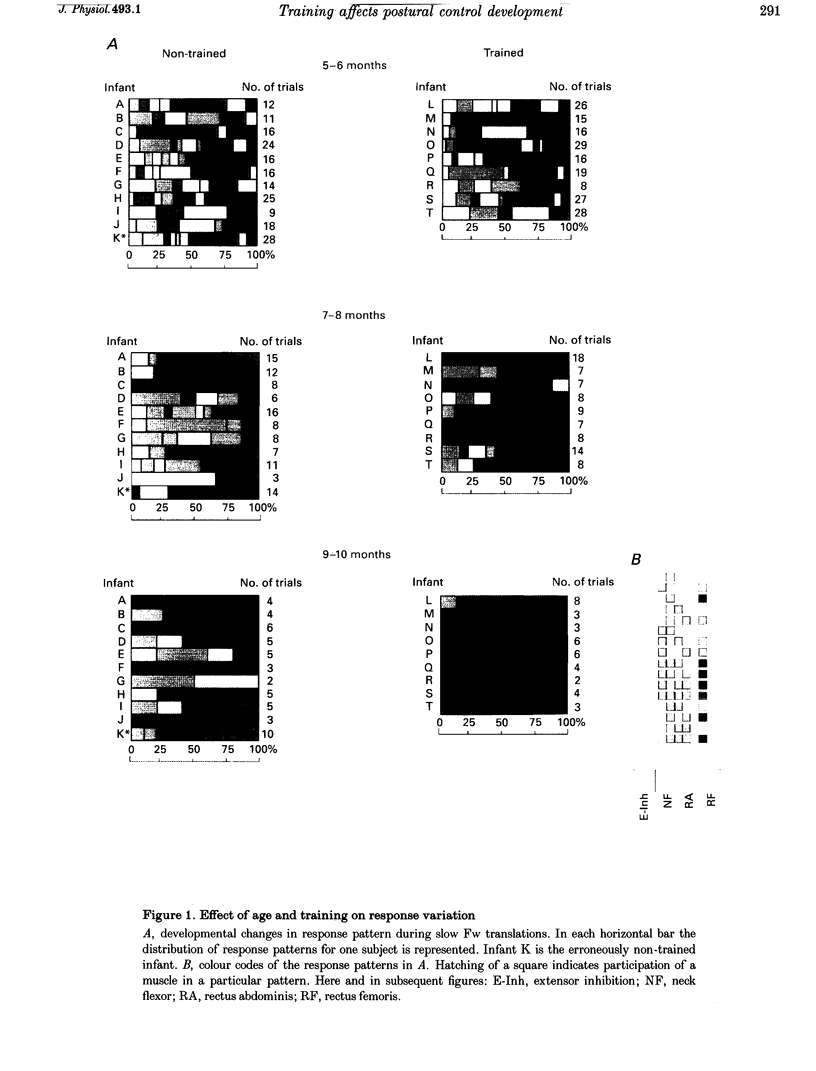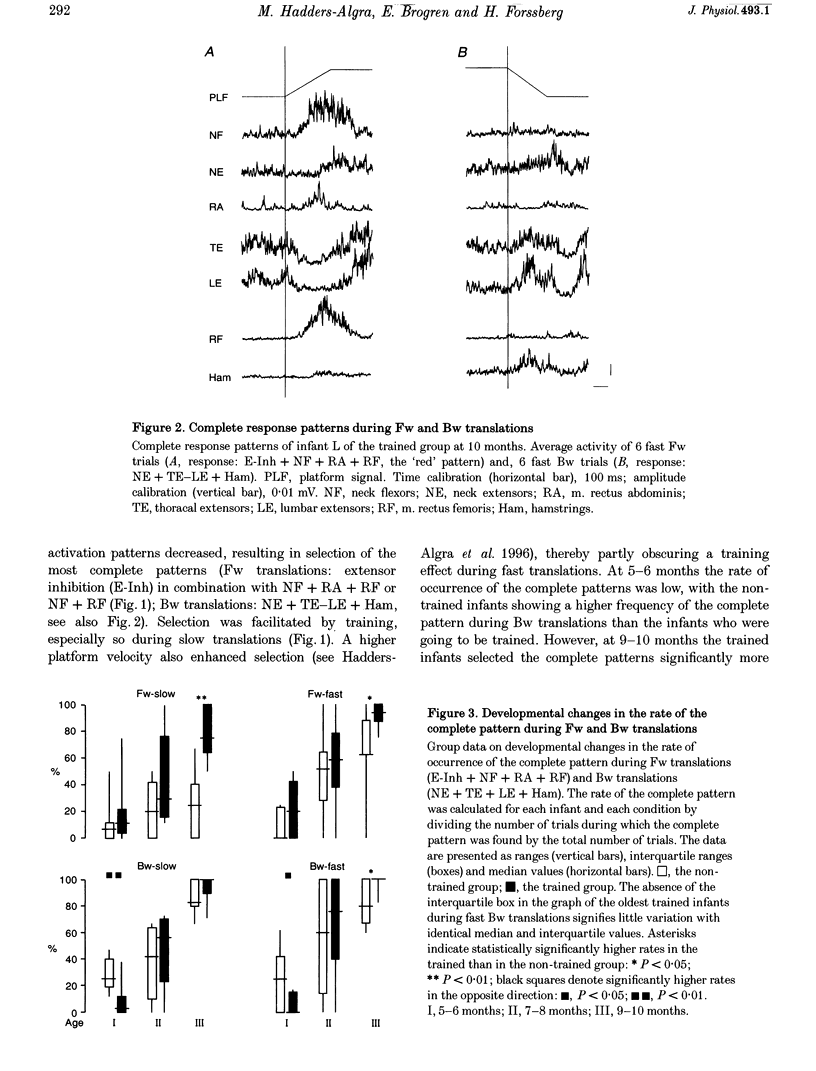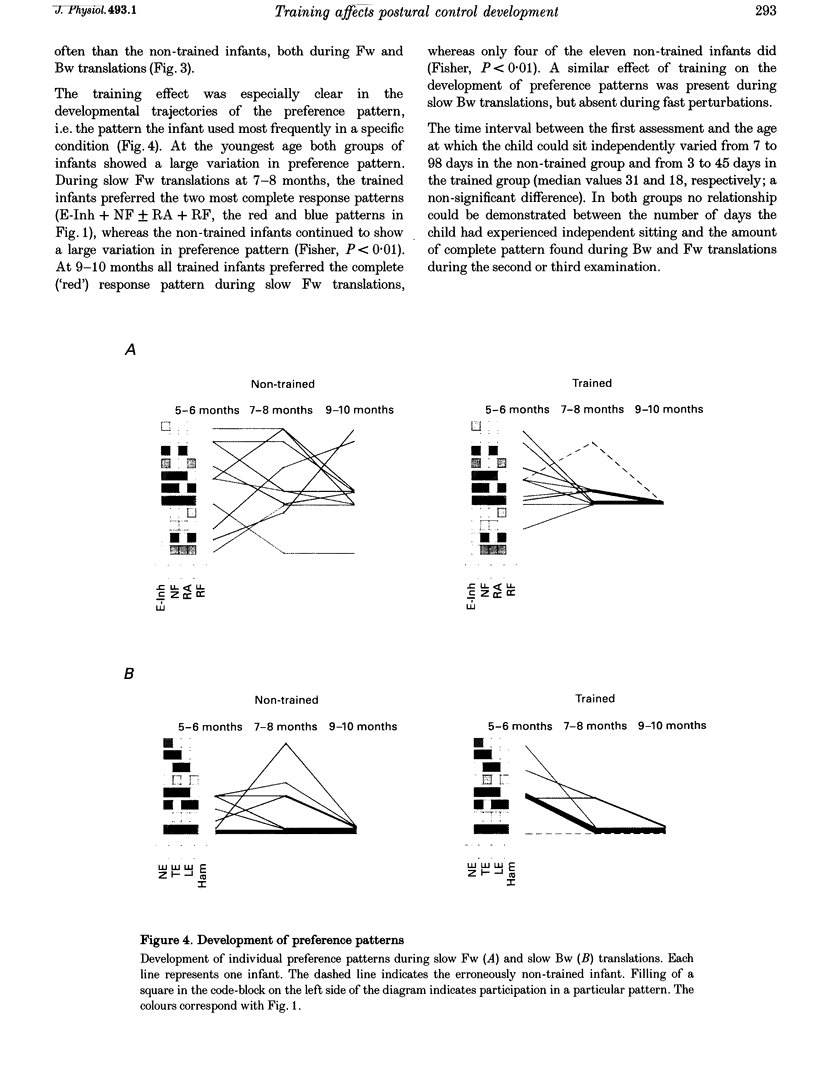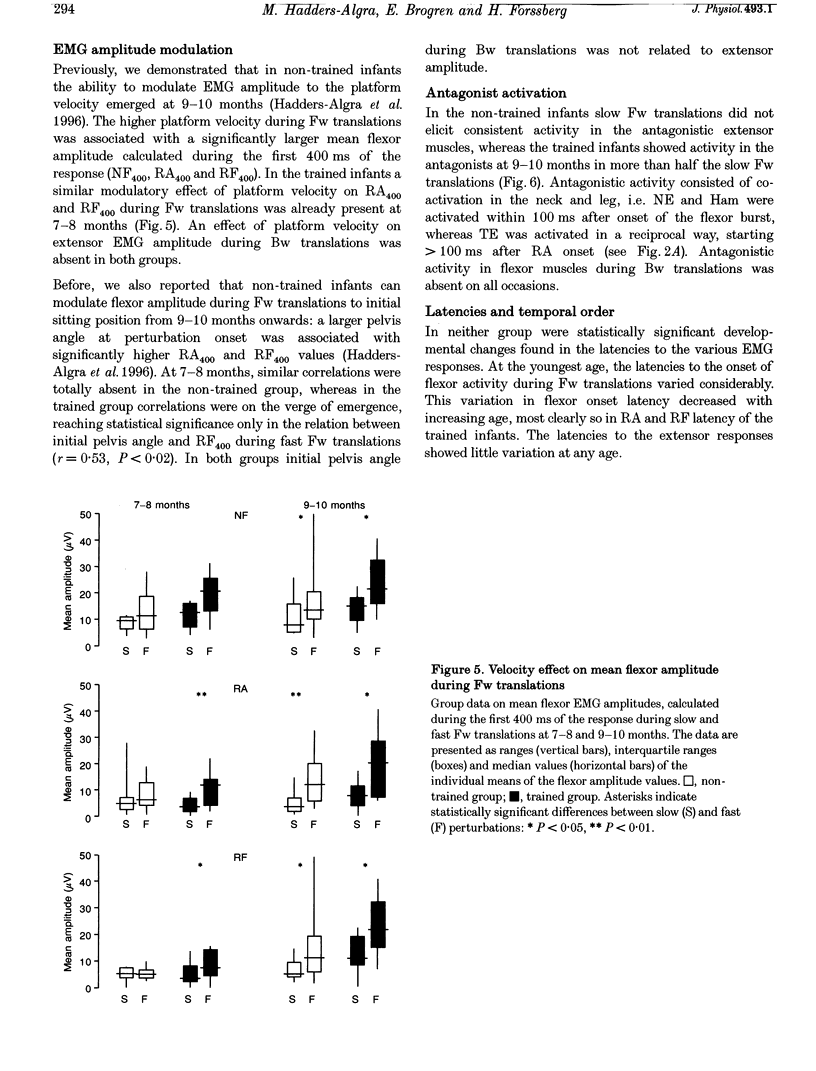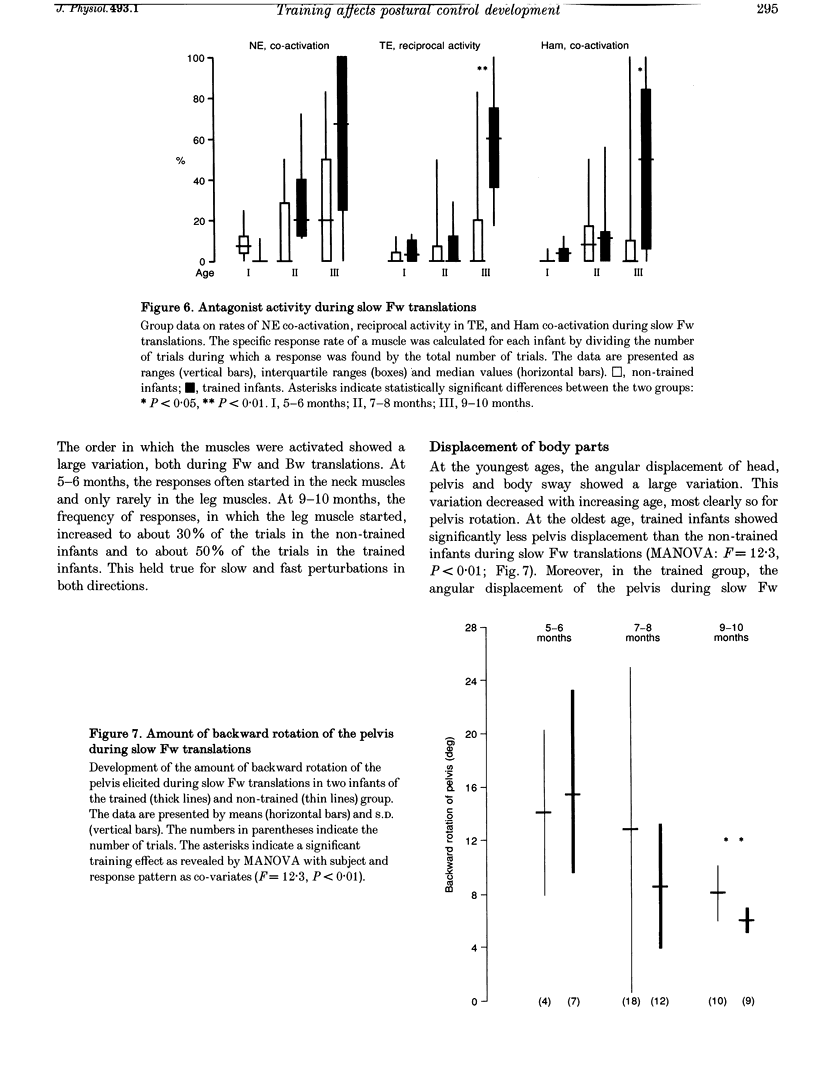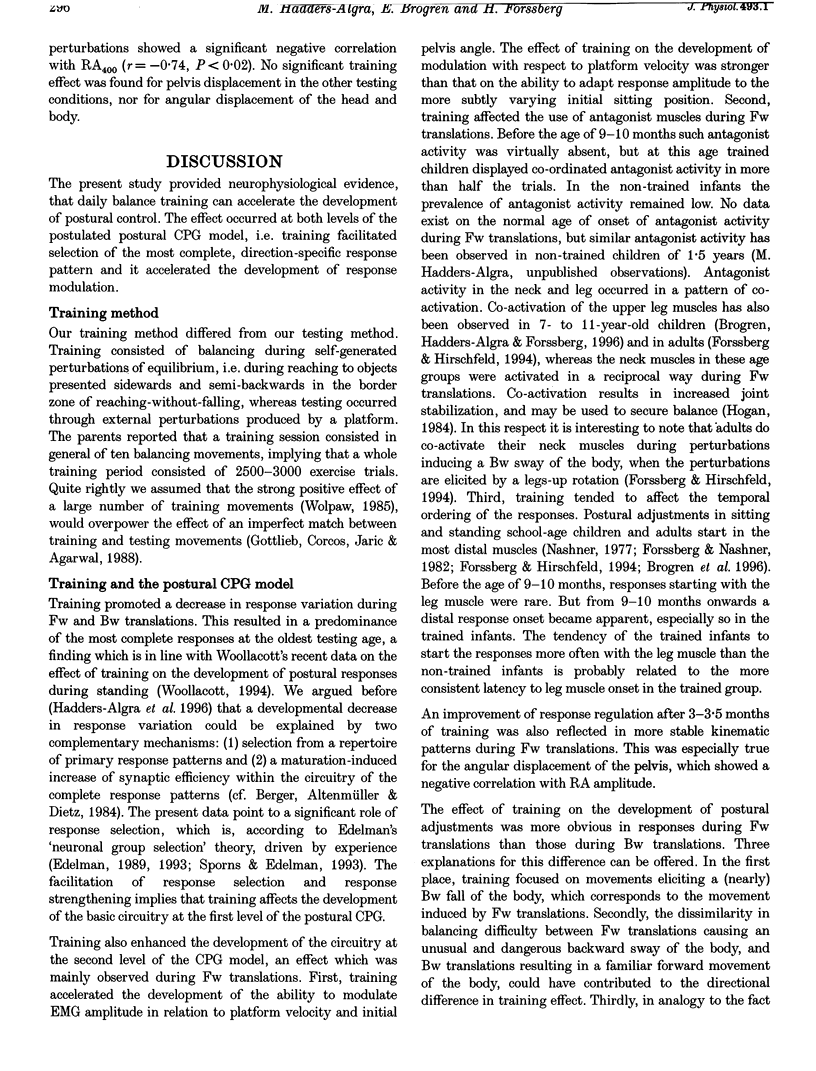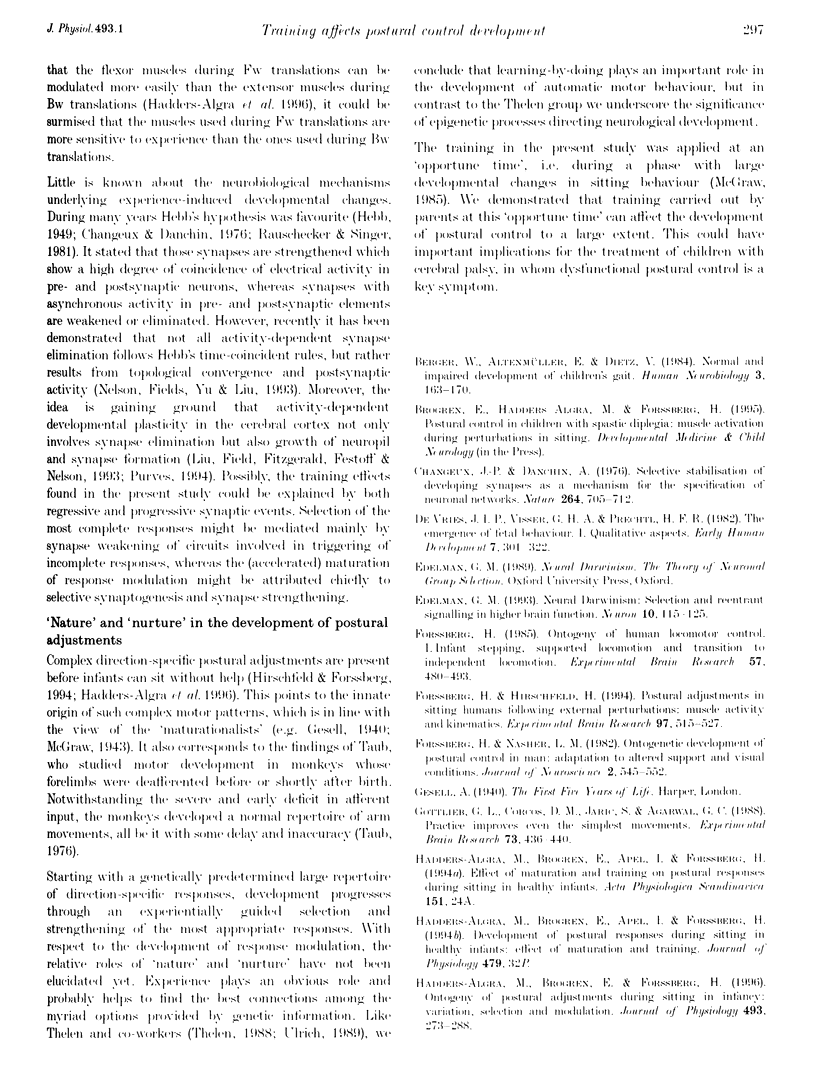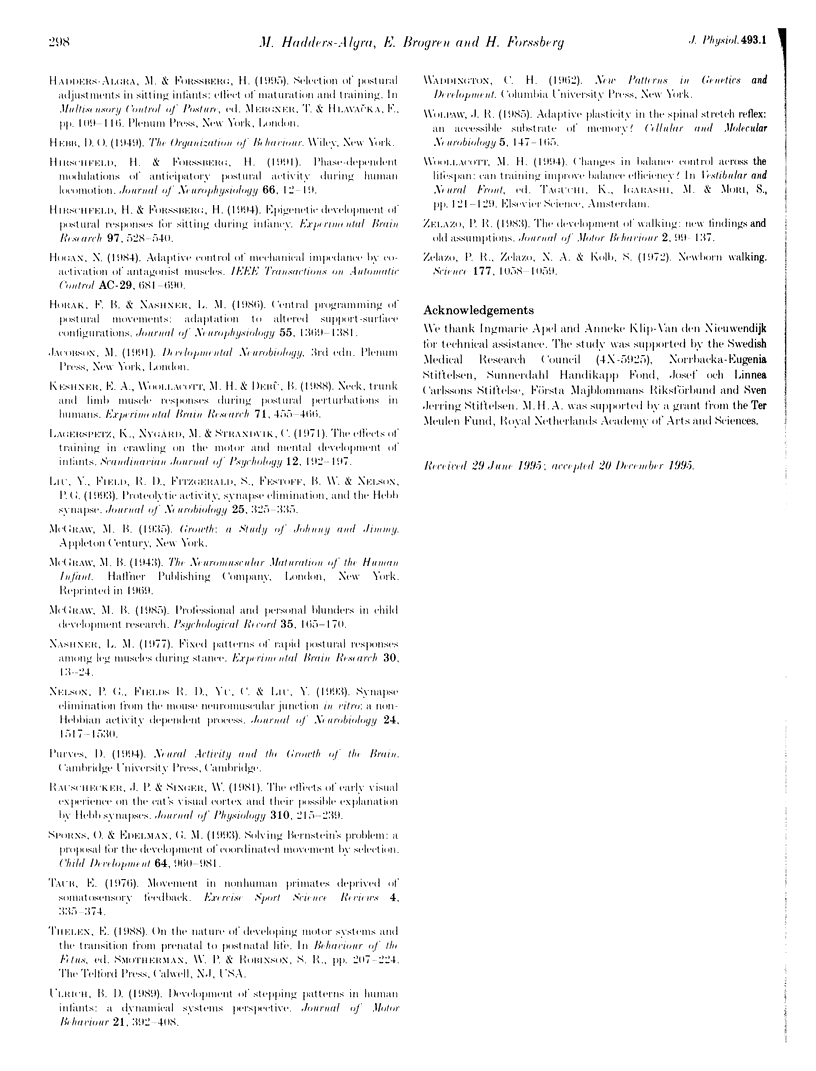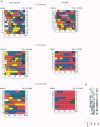Abstract
1. The present study addressed the question of whether daily balance training can affect the development of postural adjustments in sitting infants. 2. Postural responses during sitting on a moveable platform were assessed in twenty healthy infants at 5-6, 7-8 and 9-10 months of age. Multiple surface EMGs and kinematics were recorded while the infants were exposed to slow and fast horizontal forward (Fw) and backward (Bw) displacements of the platform. After the first session the parents of nine infants trained their child's sitting balance daily. 3. At the youngest age, when none of the infants could sit independently, the muscle activation patterns were direction specific and showed a large variation. This variation decreased with increasing age, resulting in selection of the most complete responses. Training facilitated response selection both during Fw and Bw translations. This suggests a training effect on the first level of the central pattern generator (CPG) model of postural control. 4. Training also affected the development of response modulation during Fw translations. It accelerated the development of: (1) the ability to modulate EMG amplitude with respect to platform velocity and initial sitting position, (2) antagonist activity and (3) a distal onset of the response. These findings point to a training effect on the second level of the CPG model of postural adjustments.
Full text
PDF